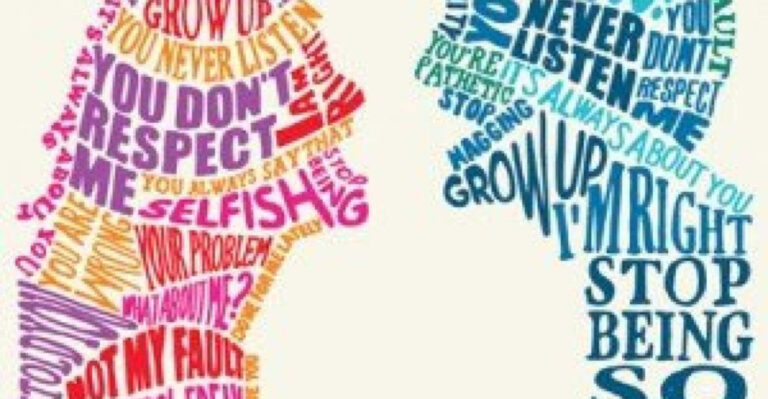How To Stop Being Clingy And Needy: 8 Ways To Do So
Before working on a possible problem, firstly you have to identify it. And the same goes for clingy behavior that you’ve probably been accused of before.
So, if you are looking for a way to stop being clingy in a relationship, the first step is to diagnose yourself as a needy and possessive person.
Of course, this is anything but easy because let’s face it—clinginess is not a desirable characteristic and none of us would like to know that our partner or anyone we love considers us as being too clingy or even boring.
Nevertheless, you wouldn’t have come here if somewhere in the back of your head, there didn’t exist this tiny voice that makes you wonder if you have this problem.
Remember that we all have a clingy side and that is nothing you should be ashamed of.

Instead, be proud of yourself for acknowledging that this is negatively affecting your relationship and that it is something you should definitely try working on.
So, what are the exact signs that you really act needy and clingy?
First and foremost, you need to ask yourself if you feel like you depend on your partner.
Are they the only one giving your life meaning and purpose and the one you couldn’t imagine living your life without?
Do you ever find yourself bombing the other person with love and attention which only makes them grow distant from you?

Do you have the urge to be in constant touch with your partner, especially when you feel them growing distant?
If the answer to most of these questions is positive, then you are definitely in need of advice on how to stop being clingy.
Don’t get me wrong—it is perfectly natural for you to love your other half but there is a difference between wanting someone to know how crazy you are for them and suffocating them with your love.
There is no doubt that being overly needy and possessive is something you have to work on and here are 8 easy steps to follow to help you learn how to stop being clingy in no time.
Understand the consequences of your neediness

Now that you’ve successfully diagnosed yourself with the problem, you are prepared to try and resolve it the best way possible.
I don’t mean to scare you but it’s crucial to understand the negative impact of neediness in a relationship in order for you to understand the seriousness of your situation.
At first glance, you probably think that your clinginess and neediness will make you and your loved one grow closer.
They’ll understand how much you love them and how deeply you care for them so eventually, all the love you’ve given them will come back to you.
False! Instead, your clinginess and neediness will just have a counterproductive effect on your relationship.

The fact is that besides being unhealthy, this kind of behavior will probably chase your partner away from you.
It’s not that you should play hard to get but showing the other person that you can’t live without them puts you in a bad position.
It gives them the power over you because you are the one who acts as if you need them to survive.
Besides, even if it happens that your significant other doesn’t take advantage of this side of yours, it will definitely push them away from you because nobody likes feeling trapped in a relationship or that they have a duty to be with someone.
Remember that your partner doesn’t even have to verbalize that they are emotionally overwhelmed by you—sometimes even their body language can suggest that you are choking them—you just have to read the signs.
2. Figure out why you’re clingy

Before you ask yourself how to stop being clingy, you need to figure out why you even have the urge to act this way.
Did something from your past cause you to be like this?
Do you look at your partner as your only possible source of happiness? Do you expect them to fill the void inside of you?
Do you live in constant fear that they’ll abandon you, so you think this is the way to prevent that from happening?
Are there some trust issues bothering you? Do you not think that you are enough for someone to love you?
Are you afraid of ending up alone?
Do you fear single life and want to keep your partner next to you just for the sake of having your other half complete you?
These are all the questions that need thorough self-analysis and introspection.
Moreover, these are the questions only you have the ability to answer and the questions which will help you see things way more clearly.
Talk to your partner about it

If you’ve come to the point where you are wondering how to stop being clingy, it means that sometime in the past, your partner probably accused you of being too needy or has already asked you for more personal space.
Therefore, after you sort out some things with yourself, they are the first person you need to go to.
After admitting that you’ve finally noticed the problem, it’s time for you to ask your significant other about their views on your needy behavior.
What exactly are the things that bother them the most?
What are your behaviors that choke them and what are the things they would like you to change?
Are they ready to help you learn how to stop being clingy? The most important thing about this conversation is for you to keep an open mind.
Don’t feel attacked and encourage your partner to be as honest as possible, instead of avoiding the harsh truth.
Remember, this is for your own good—it will widen your perspective and help you hear the other, probably more objective, side of the story.
Learn about healthy relationships

Let’s face it—we all want all of our relationships, and especially romantic ones, to be as successful as possible.
Even though every relationship has its own pace, rhythm and rules, maybe it’s time for you to start investigating more about the concept of healthy relationships, which make both partners happy.
Instead of just following other people’s examples, talk to your partner. What do they think a healthy relationship stands for?
What are the things both of you would like to change about your relationship?
Are there some unresolved issues in your romance which make you feel and act this way?
What are the ways that can help you improve your relationship and consequently, help you learn how not to be clingy?
Focus more on your interests

If you want to learn how to stop being clingy, the first thing you have to do is change your focus from just your partner to yourself and to understand that they are only a part of your life—not your entire life.
Remember who you were before you entered this relationship; well, you are still the same person.
Remember all the things you liked, all the people you hung out with and everything that occupied your life before this person came into your life.
Now it’s time to pay attention to all of these things and people again.
I am not saying you should disregard your partner or make them feel emotionally neglected but you should definitely focus more on your interests and on the process of rebuilding yourself as the independent individual you are.

Think of everything that makes you happy and put your energy into it. Also, try finding some new hobbies or widen your social circle.
To put it simply, get a life outside of your relationship and before you know it, you won’t have the constant need for your romantic partner the way you used to.
Another important thing to help you stop being needy is to learn to enjoy your alone time.
Don’t be afraid of going to the movies by yourself, taking a walk or going to the gym.
Do whatever fulfills you, keeps you busy and takes your mind off of your significant other.
Build your confidence

The truth is that you can never learn how to stop being clingy as long as you have self-confidence problems.
In most cases, your deeply-rooted insecurities are what’s causing this neediness and this fear of abandonment.
That is why you need to work hard on boosting your self-esteem.
I know this is easier said than done but please try your best to understand that you are enough and make sure you feel good about yourself.
Do your best to realize that you don’t need anyone to make you complete and that you are the only one who can make yourself truly happy.
Remember that you don’t have to hold on tight to someone just so they won’t leave you.
And even if they do, it is their loss because trust me, you will survive without them.
Give your partner space

After you’ve successfully fulfilled all of the steps mentioned above, it is about time you take some concrete actions against your neediness and to stop trying your best to be the center of your partner’s life.
I’ll be honest—this is probably the most difficult part, especially if you are in a long-term relationship and if you are used to things being this way but it is something that has to be done for the sake of your relationship and your own mental health.
Even though you might not be aware of it, your biggest fear is that your partner will walk out on you the moment you turn your back on them.
That they’ll leave you and replace you with someone better as soon as you give them enough room to do so and the moment you lose them and they are out of your sight.

Well, this is exactly what you have to do—you have to face your fear in order to see how pointless it actually is.
And the only way to do so is to give your partner some space. No, don’t start playing hard to get all of a sudden.
Just remember that this person had a life before you and give them the opportunity to be someone else besides your romantic partner.
Encourage them to spend time with friends and to pursue their own interests which don’t involve you.
Give them a chance to miss you. Don’t suffocate them with constant texting and calling, don’t always be the one to initiate your dates and stop asking for constant confirmation of their emotions.
For once, let them take the lead in your relationship and let them determine the rhythm of it.
Besides, it will also help you see whether this person feels a duty to be with you or if this relationship is something they really want.
Get help

Even though it can be successfully defeated, you should take emotional neediness very seriously.
So, if you think that this is something you can’t overcome by yourself, remember that there is absolutely no shame in asking for help.
Besides, it’s always better to treat the problem in time accordingly than to ignore it and hope it will miraculously go away.
There are a lot of professionals who can help you out and talking to a friend or a family member whom you trust can also be beneficial.








